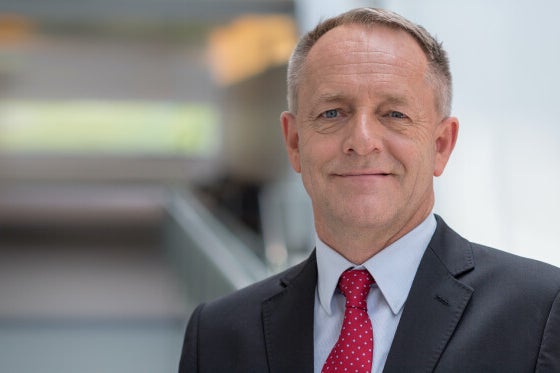Peter Westaway—former adviser to the Bank of England’s Monetary Policy Committee and ex-Chief Economist at Vanguard Europe—has spent decades forecasting global markets, shaping monetary policy, and guiding investment strategy.
With experience spanning the Bank, Vanguard, and Nomura International, he’s become a trusted voice for investors navigating today’s volatile landscape.
In this exclusive interview with The Champions Speakers Agency, Westaway shares his views on how inflation dynamics could evolve, where interest rates may be headed, the real trade-offs of ESG integration, and why artificial intelligence will be one of the biggest forces shaping the future of business and investment.
Q: Inflation has been at the centre of economic debate in recent years. From your perspective, how do you see the current inflation outlook evolving?
Peter Westaway: “Well thank you, yes I did spend 11 years advising on monetary policy at the bank and much of my career in the city trying to predict and explain Central Bank actions, and certainly central banks have had a pretty rough trot over the last few years with inflation getting up to levels that we haven’t really seen since the 1970s.
“And at the same time we’ve been experiencing depressed economic activity – so-called stagflation – and this has been driven up by higher commodity and food prices mostly caused by the war in Ukraine.
“Now when those pressures ease, history shows that inflation can fall back just as sharply on the way down as it rises on the way up.
“Of course the risk that central bankers worry about is that firms and households will get used to that high inflation and they’ll start to bake that into the expectations of what’s going to happen.
“I think the fact that the bank has a clear inflation target has helped to avoid that risk, though even so they’ve come in for a lot of flack lately, including from a recent House of Lords report.”
Q: Given that backdrop, what trajectory do you expect for interest rates over the coming years?
Peter Westaway: “At the time of speaking, financial markets have generally been pricing that interest rates have peaked both here and in the US and Euro area, and are set to start falling — perhaps towards 4%, maybe as low as 3.5% over the following years. I think they could even fall more quickly than that if inflation surprises on the downside.
“And while I don’t expect to see rates fall to the incredibly low levels seen after the financial crisis, we could see mortgage rates say falling from their current high levels perhaps to around 3%, and company borrowing rates should fall accordingly.”
Q: ESG has become a central focus for investors and companies alike. How should businesses integrate ESG into their strategies without undermining financial performance?
Peter Westaway: “Well, the issue of ESG – and that stands for environmental, social and governance – is now front and centre. Company executives and investors often want to do the right thing, but they’re also uncomfortable about compromising their business and investment objectives.
“And in my view, a lot of nonsense is talked about there not being a trade-off between ESG and business objectives, but there almost always is.
“So there needs to be clarity of thinking about exactly what the desired outcome is. Now increasingly, regulations are being brought in that will be requiring companies and investors like pension funds to place more weight on these broader objectives.
“But it is important to be honest about how this might have short- and long-run consequences, both good and bad.”
Q: Beyond inflation, rates and ESG, what are the biggest forces businesses need to prepare for in the medium term?
Peter Westaway: “Well undoubtedly the answer to that question, and probably the question I get asked most often, is about the impact of artificial intelligence.
“This is certainly going to be critically important for businesses to understand, even if we dismiss – probably rightly – all the scare stories about robots taking over the world.
“At the moment we’re a long way off so-called super-intelligent AI, but even the specialised AI – the sort that’s tuned to a specific task that’s currently in widespread use – well that’s already rendering many human endeavours redundant, even if it is providing the potential to improve living standards.
“So this really does raise interesting questions about the future of work. Whether we will end up as leisured classes with machines doing the work for us, like in that Pixar film WALL-E, or do we face a future where the benefits of AI go to a privileged few and the rest suffer from high unemployment and all the social and medical consequences that go with it.
“Now there’s a lot of important work going on in this area and I’m very happy to elaborate on that.”
This exclusive interview with Peter Westaway was conducted by Tabish Ali of The Motivational Speakers Agency.
Benzinga Disclaimer: This article is from an unpaid external contributor. It does not represent Benzinga’s reporting and has not been edited for content or accuracy.
